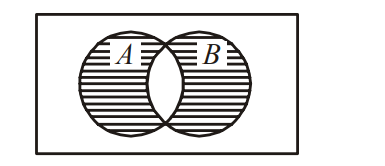Q. Let $A, B, C$ be three events. If the probability of occurring exactly one event out of $A$ and $B$ is $1-a$, out of $B$ and $C$ and $A$ is $1-a$ and that of occurring three events simultaneously is $a^{2}$, then the probability that at least one out of $A$, $B$, $C$ will occur is
Probability
Solution:
